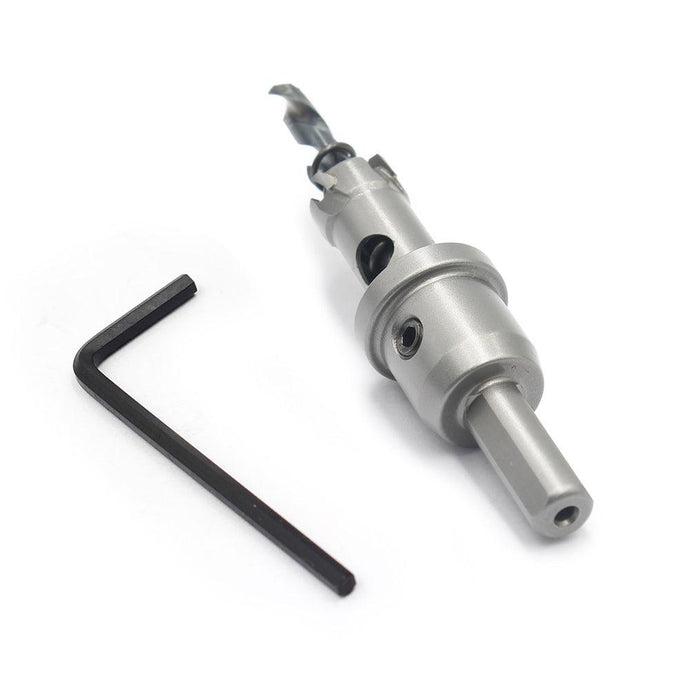Essential Tools Every Woodworker Should Own for Precision and Craftsmanship
Woodworking requires a blend of creativity, skill, and the right tools. For both beginners and seasoned woodworkers, having a set of essential tools is key to achieving precision, efficiency, and a professional finish on every project. From basic hand tools to power tools that offer versatility, the must-have tools for woodworking enable craftsmen to tackle a wide variety of projects, from furniture making to intricate carvings. Here's a look at some of the most important tools that every woodworker should have in their workshop.
A good-quality table saw is arguably the backbone of any woodworking setup. This tool provides the power and stability needed for making long, straight cuts with incredible accuracy. Ideal for cutting large pieces of lumber or sheet goods like plywood, a table saw is essential for creating precise cuts for joinery, panels, and frames. With the right blade and fence setup, a table saw can also perform more detailed tasks like bevels, dado cuts, and even joinery, making it one of the most versatile tools in woodworking.
A miter saw is another vital tool, particularly for creating angled cuts, which are common in frame construction, trim work, and furniture making. Known for its speed and accuracy, the miter saw is designed to make crosscuts and miter cuts with ease, allowing woodworkers to cut precise angles for picture frames, moldings, and corner joints. Compound miter saws take this a step further by allowing bevel cuts, making them ideal for projects requiring compound angles. Compact and straightforward to use, the miter saw is a go-to tool for any woodworker focused on accuracy.
For intricate cuts and curves, a bandsaw is an essential addition to the woodworking toolkit. Unlike the table saw, which excels at straight cuts, a bandsaw has a thin, continuous blade that allows for intricate curves, notches, and resawing (cutting wood into thinner pieces). This versatility makes it particularly valuable for furniture makers, woodturners, and anyone doing freehand cutting. Bandsaws are also invaluable when working with thick stock, as they can make deeper cuts than most other saws.
A power drill is another must-have for any woodworker. From drilling holes for screws and dowels to countersinking screws and using attachments like sanders or polishers, a power drill is used in nearly every project. Cordless drills offer flexibility and mobility, while corded models provide constant power for prolonged use. For woodworkers, a drill with adjustable speed settings and a variety of bits is ideal for working on both hardwood and softwood. Some drills come with hammer functions, which can be useful when working with other materials, adding even more versatility.
Hand tools, though simple, are equally essential. A quality set of chisels is invaluable for carving, detailing, and cleaning up joints. Wood chisels, especially those made from high-carbon steel, offer sharpness and control, allowing woodworkers to refine mortises, dovetails, and other types of joints. Pairing chisels with a mallet for controlled, precise taps provides a way to achieve detail work that no machine can match. Similarly, a reliable hand plane is crucial for smoothing surfaces, creating chamfers, and evening out surfaces. Hand planes offer unmatched control and precision, making them a staple for any woodworker focused on achieving fine finishes.
Another critical tool in woodworking is the router. With the right bits, a router can hollow out areas, create grooves, add decorative edges, and even cut joints, such as dovetails and mortises. Routers come in fixed-base and plunge varieties, each suited to different types of tasks. Fixed-base routers are excellent for edge work, while plunge routers offer more flexibility for deeper cuts and intricate designs. Having a router in the workshop opens up possibilities for customization and decorative work, turning standard projects into unique pieces.
No workshop is complete without proper measuring and marking tools, which ensure accuracy in every cut and join. A tape measure, combination square, marking gauge, and carpenter's pencil are indispensable for layout work. Accuracy is the foundation of quality woodworking, and these tools ensure precision at every stage of a project. A combination square, for example, helps with marking right angles, checking depths, and even measuring short distances, while a marking gauge is crucial for scoring consistent lines for cuts and joints.
A quality sander is also essential for achieving smooth finishes. Random orbital sanders are popular for their versatility and ability to provide a clean, even finish on wood surfaces. Unlike belt sanders, which are great for heavy stock removal, orbital sanders move in a random pattern, reducing the risk of visible swirl marks. Sanding is a crucial step in woodworking, whether you're preparing wood for finishing or smoothing out rough edges, and a good sander can significantly reduce the time and effort required.
Lastly, clamps are an absolute must for any woodworking project. They hold pieces securely while glue dries, ensuring that joints and panels are aligned and set correctly. Bar clamps, C-clamps, and pipe clamps are some of the most commonly used types, each suited to different tasks. Having a variety of clamps allows woodworkers to apply even pressure across various shapes and sizes, which is essential for strong, durable joins.
These essential tools create a solid foundation for any woodworking workshop, providing the capability to tackle everything from simple projects to complex, custom work. Whether you're a novice woodworker or a seasoned craftsman, investing in quality tools tailored to your projects will enhance your craftsmanship, allowing you to work with precision and creativity at every stage of the process.

